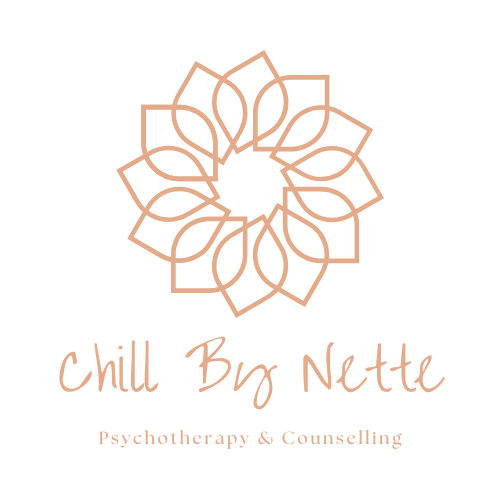In this article, let’s talk more about self-development and what it is about.
Many people have the notion that self-development or self-help is about looking into our deficits and dysfunctions- and subsequently finding ways to improve them. Even the most well-researched therapeutic approaches like “cognitive behavioural therapy” are also heavily focused on treating the maladaptive thoughts within a person. It involves examining a person’s dysfunctional cognitive patterns and restructuring them. Not to mention in certain cultures, our strengths are also often downplayed as we are pressed to conform to societal norms of being modest.
But the question here is: Are our weaknesses the only thing to focus on? How much of ourselves should we be “fixing” ?
“Stop trying to ‘fix’ yourself; you’re not broken! You are perfectly imperfect and powerful beyond measure.” -Steve Maraboli
Like most, I am a person who often dwells a lot on the negative parts about myself and often try to “fix” my weaknesses, seeing that it was the way towards self-improvement. I can often be overly concerned or obsessed about my flaws as well. And the truth is, no matter how much we dwell on our problems it could never be 100% fixed.
While self-development involves looking into our flaws and trying to improve on them, what most people miss out on is their inherent strengths and gifts that deserve equal, if not more, attention.
Recently, I’ve came across what researchers termed as a “Strengths-based Approach”– an approach that highlights “what is strong” rather than simply, “what is wrong”. It is about cultivating a mindset that is predominantly focused on our strengths, as opposed to our deficits.
This approach leverages on the idea that what we focus on grows and expands. We are all unique individuals, gifted and flawed in our own ways. When we focus on what we are good at and enjoy doing, the good parts of us expand, and we can also better gain clarity on our gifts to serve our purpose in this world.
Why should we focus on our strengths?
Leading strengths researcher, Professor Alex Linley, defines a strength as: “a particular way of behaving, thinking, or feeling that is authentic and energising to the user, and enables optimal functioning, development and performance.”
When we focus on our strengths, we not only improve in our area of expertise but we also gain more energy and motivation in the process. People who focus on their strengths are more confident, have higher levels of energy and vitality. They are also more resilient, perform better at work and are more likely to achieve their goals. Utilising more of our strengths also helps with mental health recovery and improvement of our overall health status (Peterson & Seligman, 2004).
In focusing on our weaknesses, we may make some progress and growth, but we can never reach an expert level of ability. In addition, our weaknesses that require improvements are not our natural strengths. Hence, in the process we may not feel energised or motivated when we are making improvements.
Research also suggests that we may also overestimate our ability to improve on our weaknesses. Sometimes it requires a lot of hard work and effort to make only a little progress. Then, on realising that this may take more work than we are willing to put in, we can become frustrated, demoralised and give up trying to make the change.
The truth is, as humans, we can’t be perfect at everything that we do. Focusing on our strengths seems like a more effective use of our time, as far as our personal development is concerned. Applied research shows that strength areas have by far larger growth potential than one’s weaknesses, and they are where we will see the biggest returns.
“Fixed Mindset” vs. “Growth Mindset”
Are there times when you should concentrate on a weakness?
Well, that said, utilising the strength-based approach doesn’t mean ignoring all our weaknesses. When our weaknesses interfere with our ability to perform our daily stuff and self-confidence, it is probably time to focus on it. Sometimes, an unchecked lack of self-efficacy can impact our ability to see and develop our strengths. As a result, we might likely be doubting our self-worth and abilities, which can impair our performance. By taking the time and effort to resolve the issues concerning this weakness, we will gain more self-esteem and enable our strength to shine through.
9 Principles of the Strength-Based Approach
Here are the nine guiding principles that serve as the foundation of the strength-based approach (Hammond, 2010).
- Everyone possesses a unique set of strengths that helps them evolve and move along their journey.
- What we focus on becomes our reality.
- Be mindful of the words and language we use. They create our reality.
- Don’t resist change. Our world never stops changing and evolving. Change is an inevitable part of life.
- Support others as authentically as you can without “fixing” them. Positive changes emerge from meaningful and authentic relationships.
- You are the expert of your own story.
- Build upon what you already know as you journey into the unknown.
- See that capacity and strength building is a process and goal in itself.
- Value each other’s differences. Be collaborative, inclusive and adaptive!
How to find your strengths? Here are 3 tips:
Apart from the multiple online personality tests, here are three other tips to help you discover your strengths:
- Pay close attention – Sometimes you have to look at things a little deeper to find your strengths. Unexpected praise or reward for something you didn’t put much effort into could be a sign.
- Think about how activities make you feel – In Marcus Buckingham’s book “Go Put Your Strengths to Work”, he stated that we can find our strengths not looking at what we are good at doing, but what energises us! In other words, what are the activities that make you fulfilled, engaged and drawn to? Strengths make you feel strong. Weaknesses make you feel weak.
- Ask around you- Sometimes people around us are able to pinpoint things that is hard for us to see. Ask your friends, family members, boss, coworkers, or a mentor to tell you what they think your strengths are. The goal of this is to better help you increase self-awareness, and identify unconscious patterns or behaviour which you are not aware of.
A take-home message
I hope this article gave you some insights on the “strength-based approach” and some useful information. If there’s one thing you should take away from this piece, it’s that your strengths have been with you from the very beginning. Sometimes it takes thinking back to when you were a kid, what you were good at, and what you enjoyed to remember your strengths. Feel free to refer back to this piece if you’re ever feeling like you aren’t good enough or don’t have any skills or traits that make you useful, because you absolutely do.
To end off, self-development is never simply about “fixing yourself”. It is also learning to shift your focus away from your deficits, towards the strengths you inherently possess- which often brings better forward progress.
References:
Written By:
Jeannette Qhek
BSc in Psychology & Human Resources (Singapore Management University)
Founder of Chill By Nette

